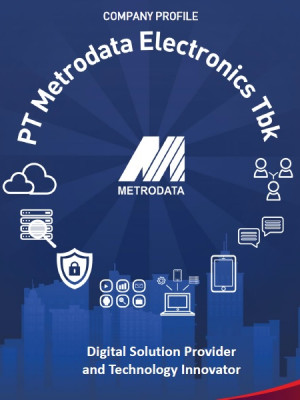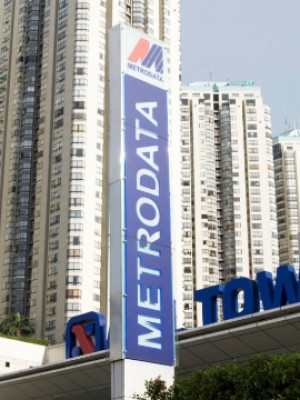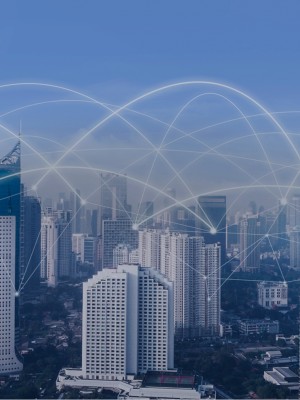Tips for Building Modern Applications with the Right Infrastructure
Learn how to build modern applications that fit the right infrastructure. Discover the best tips here.
Did you know that the applications we use daily, whether on cell phones, laptops, or other devices, can generally be categorized into two main types: traditional applications and modern applications? The fundamental difference between the two lies in the IT infrastructure they utilize.
The choice between traditional and modern applications is a strategic decision that companies must make. Factors such as existing infrastructure, business complexity, development speed, and flexibility play crucial roles in determining the most appropriate approach.
Therefore, it is important to getting know the characteristics and benefits of traditional applications and modern applications. This will help companies make informed decisions when building applications.
Traditional Applications vs. Modern Applications, Which Is Better?
Traditional applications, also known as "legacy applications," refer to software developed using legacy technologies and methodologies, such as monolithic and desktop-based systems.
Due to the monolithic concept used in traditional applications, making changes and development becomes more difficult, as every change affects the entire application system.
On the other hand, modern applications adopt the concept of microservices, which breaks down applications into small components called "services" that are interconnected. It provides flexibility in application development, maintenance, and scalability.
Additionally, modern applications run inside container platforms, such as Docker, which allows for a uniform development and production environment.
It's also important to note that modern applications are tightly integrated with DevOps and DevSecOps principles, which combine development and operations into one continuous process.
Modern Applications Are the Choice Because They Offer Microservices Infrastructure
Companies today use microservices technology to upgrade services into modern applications. According to a Statista survey in 2021 with 950 respondents from various large companies, 85 percent of these respondents already use microservices in their applications.
So, why are microservices becoming increasingly popular? The answer is simple: microservices enable companies to provide better digital services to their customers. Microservices divide applications into smaller, but still interconnected, services or features. With microservices, developers can easily develop each feature, even if they come from different teams.
One example of the use of microservices is found in ride-hailing applications, where this solution can provide several features such as online motorbike taxi ordering, food purchases, payments, and delivery of goods in one application. This is certainly the key to the success of many ride-hailing applications in realizing their goals as a "Lifestyle App" or "Super App."

Challenges of Implementing Modern Applications
While modern applications offer numerous benefits, their adoption comes with a set of challenges that companies must address. One of the primary challenges is the complexity of the underlying technologies, including containerization, microservices, and cloud computing. Integrating and managing these technologies can be intricate and often demands specialized expertise.
Beyond technological complexity, security stands out as a significant challenge in implementing modern applications. Cyber threats are continuously evolving and are adept at exploiting vulnerabilities in application infrastructure.
Operational costs also pose a hurdle in adopting modern applications. Modern infrastructure can be expensive to operate, especially if not well-optimized.
To tackle these issues, integrated solutions from Dell, Red Hat, and Elastic can provide a unified and integrated platform for modern infrastructure management. The integration of these three solutions streamlines application development, enhances security, and promotes cost-effective management.
Make Modern Applications a Reality by Integrating Three Solutions: Dell, Red Hat, and Elastic
By combining integrated solutions from Dell, Red Hat, and Elastic, companies can unlock significant advantages in their pursuit of advanced modern applications. This integration empowers companies to gain new insights, automate critical tasks, and bolster application security.
For instance, Dell solutions lay the foundation for modern application deployment, offering a robust infrastructure base. Red Hat OpenShift serves as a container orchestration platform, facilitating efficient application deployment and management. Meanwhile, Elastic provides a suite of tools for seamless data collection, storage, and analysis.
Moreover, the synergy of these three solutions yields the following benefits:
● Dell's AI-powered predictive analytics can identify potential performance issues in applications running on Red Hat OpenShift, enabling proactive corrective actions
● Red Hat OpenShift's built-in security features can be further enhanced with Elastic's SIEM solution, providing a comprehensive view of security threats and expediting threat detection and response
● Elastic's machine learning capabilities can automate tasks such as configuration management and performance monitoring, freeing up IT resources for more strategic endeavors.[]
Build Microservices Applications with Metrodata and MII
PT Mitra Integration Informatika (MII) as a subsidiary of PT Metrodata Electronics Tbk (Metrodata) and authorized partner of Red Hat, Dell Technologies, and Elastic has a competent and certified team to help your company build applications with these three integrated solutions.
For further information :
Customer Experience
Customer.experience@mii.co.id
021 29345 777 Ext 3330






